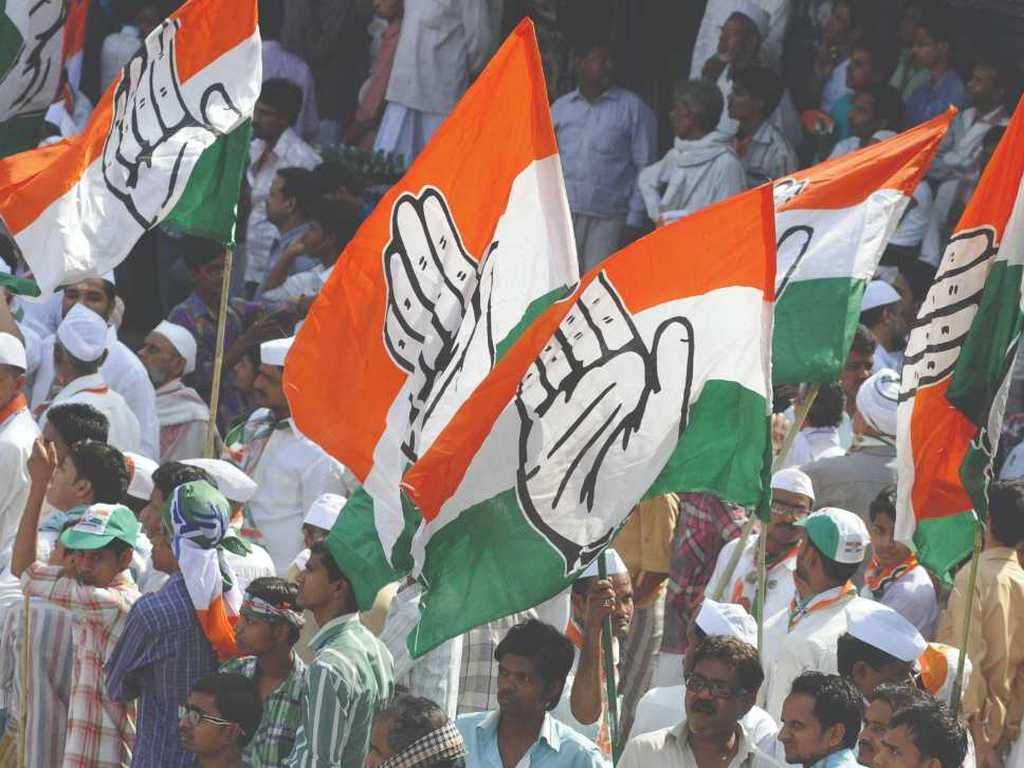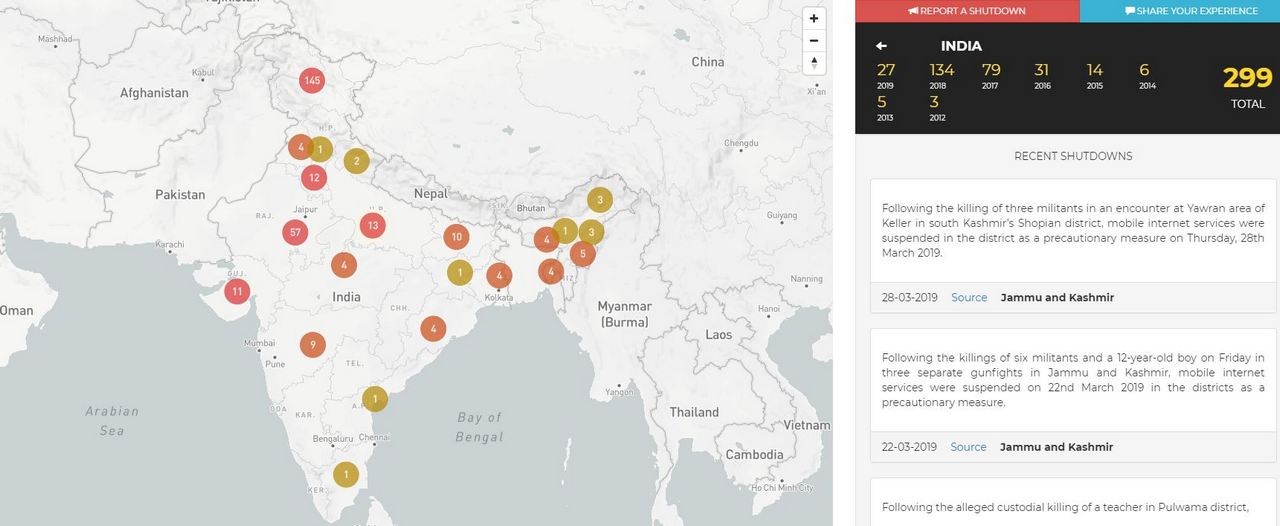Sameer SachdevaApr 03, 2019 13:34:26 IST
The Indian National Congress (INC) released its manifesto for the General Elections 2019 which are starting from 11 April 2019. In the manifesto, the party affirms its belief that every Indian shall enjoy digital rights and be able to freely access the digital world.
The party promises on eight dimensions with respect to the digital world.

A confident Congress is holding out for more than its ‘fair share’ of seats, irritating its allies
High-quality internet access
The first promise the Congress party makes is to provide access to all persons to high-quality internet at affordable rates. The access to affordable internet is already high in the country and it has jumped many times under the rule of NDA government. Statista claims that there are already 46 crore internet users in the country. India is the second largest online market, ranked only behind China and has seen an 11,000 percent growth from 2000 to 2019. By 2021, there will be about 63.58 crore internet users in India. This is a significant increase in comparison to the previous years, considering the internet penetration rate in India stood at about 10 percent in 2011.
Upholding the principle of net neutrality
The second promise made by the Congress party is to uphold the principle of net neutrality to ensure the internet stays a level playing field. Net neutrality is already secure in India with the Department of Telecommunications (DoT) having passed the rules to approve the net neutrality framework on 12 July 2018. The rules barred any form of data discrimination and Internet Service Providers (ISPs) found to be violating these rules can have their licenses cancelled. So, it is not clear that what Congress means when it says it wants to do more for net neutrality. A little more elaboration from the party would have helped.
Regulating internet shutdown powers
The third commitment which the Congress party has promised is to regulate the power to shut down the internet and to prevent arbitrary shutdowns. The Constitution of India already guarantees freedom of expression as a fundamental right but puts some restrictions in case of threats to the unity, integrity, defence, security or sovereignty of India, friendly relations with foreign states or public order. In most cases, the internet has been shut down by the government in terror-hit states where there were dangers of violence due to various reasons and such a regulation will be a headache to law enforcement agencies.

Internet shutdowns in India. Image: internetshutdowns.in
This is something that is badly needed, as India has been at the top of the list of internet shutdowns globally. According to this Internet Shutdown tracker, India is notorious for internet shutdowns with 31 shutdowns in all of 2016, to around 27 shutdowns in just the first three months of 2019, this is an issue that is in a dire need of some regulation.
Open source boost
The fourth commitment of the Congress party is to promote the development and use of open standards and free and open source software, in order to enable citizens to avail of government services and access government information without being obliged to rely on proprietary software. The policy and framework for the adoption of Open Source Software in e-governance projects already exists. The policy statement clearly says, “Government of India shall endeavour to adopt Open Source Software in all e-Governance systems implemented by various Government organisations, as a preferred option in comparison to Closed Source Software”.
Right to Privacy
The fifth promise focusses on passing a law to protect the personal data of all persons and uphold the right to privacy. In respect to the right to privacy, the Supreme Court had already delivered its judgement in write petition 494 on 2012 and others on 26 September last year, where the apex court has impressed upon the government to bring out a robust data protection regime in the form of an enactment based on Justice BN Srikrishna (Retd.) Committee Report. The Srikrishna Committee deliberated on various issues and brought out a White Paper on Data Protection that laid down the principles. Thereafter, the Committee submitted its report along with draft Bill to MeitY. The report and the draft Bill were placed in the public domain and comments were sought, feedback has been received. So, in essence, which ever government comes to power it has to bring a law on privacy as ruled by the Supreme Court.

Representational image.
Laws against excessive surveillance
The sixth promise by Congress party is to pass a law to provide adequate safeguards against unlawful or excessive surveillance and monitoring and provide for both independent and parliamentary oversight. Any such law will be a welcome move. However, the Indian Telegraph Act 1885 and the IT Act 2000 which gives power to law enforcement agencies to carry surveillance had been in existence since many successive governments of Congress. It only looks like an election gimmick that the party will bring a law to end surveillance which brought projects like NATGRID and NETRA. The current government, however, has gone overboard on surveillance. On 20 December 2018, it brought in a notification authorising 10 agencies to intercept, monitor and decrypt any information generated, transmitted, received or stored in any computer. So, if Congress brings safeguards and parliamentary oversight on the issue of surveillance it will help in protecting the right to privacy (and thereby right to life) of the citizens.
Open data sets
The seventh promise by Congress is to make all government departments publish all non-private data sets as open data, allowing citizens to access the data without having to file RTI requests. In pursuance of the National Data Sharing & Accessibility Policy (NDSAP) the Government of India in March 2012, MeitY through NIC has set up the Open Government Data (OGD) Platform India to provide open access by proactive release of the data available with various ministries/departments/organisations of the government. The OGD has already been in existence and the data is available in line with the principles of Open by Default from all e-Government Service Applications.
Regulating fake news
The eighth commitment by the party is to pass regulations to stop the spread of fake news and hate speech and punish those who misuse digital and social media. Such an initiative will give vast powers to law enforcement agencies. It could also affect the freedom of expression as a lot will depend on who decides in what way that a piece of news is real or fake. The party should think again on bringing such a law as there are many chances of the same being misused.
In essence, the promises by Congress party in its manifesto with relations to digital rights of citizen appear to be hollow. Regulating internet shutdowns looks like the only strong point among the eight enlisted above, as the rest appear to be redundant or iterative, at best.
Tech2 is now on WhatsApp. For all the buzz on the latest tech and science, sign up for our WhatsApp services. Just go to Tech2.com/Whatsapp and hit the Subscribe button.
Post a Comment